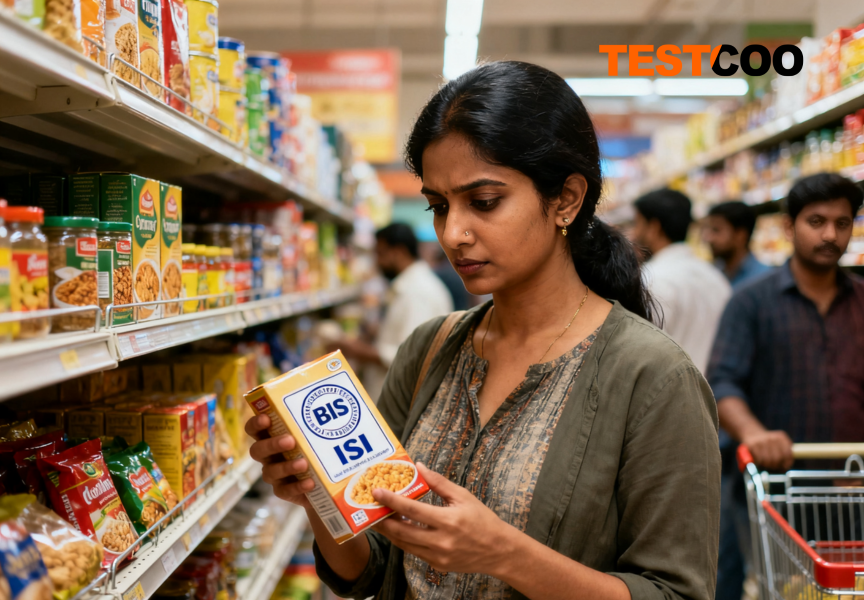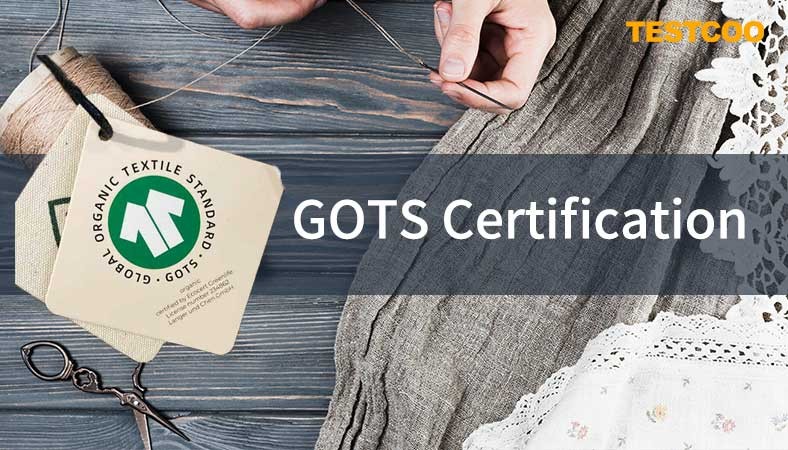BIS Certification in India: A Complete Guide
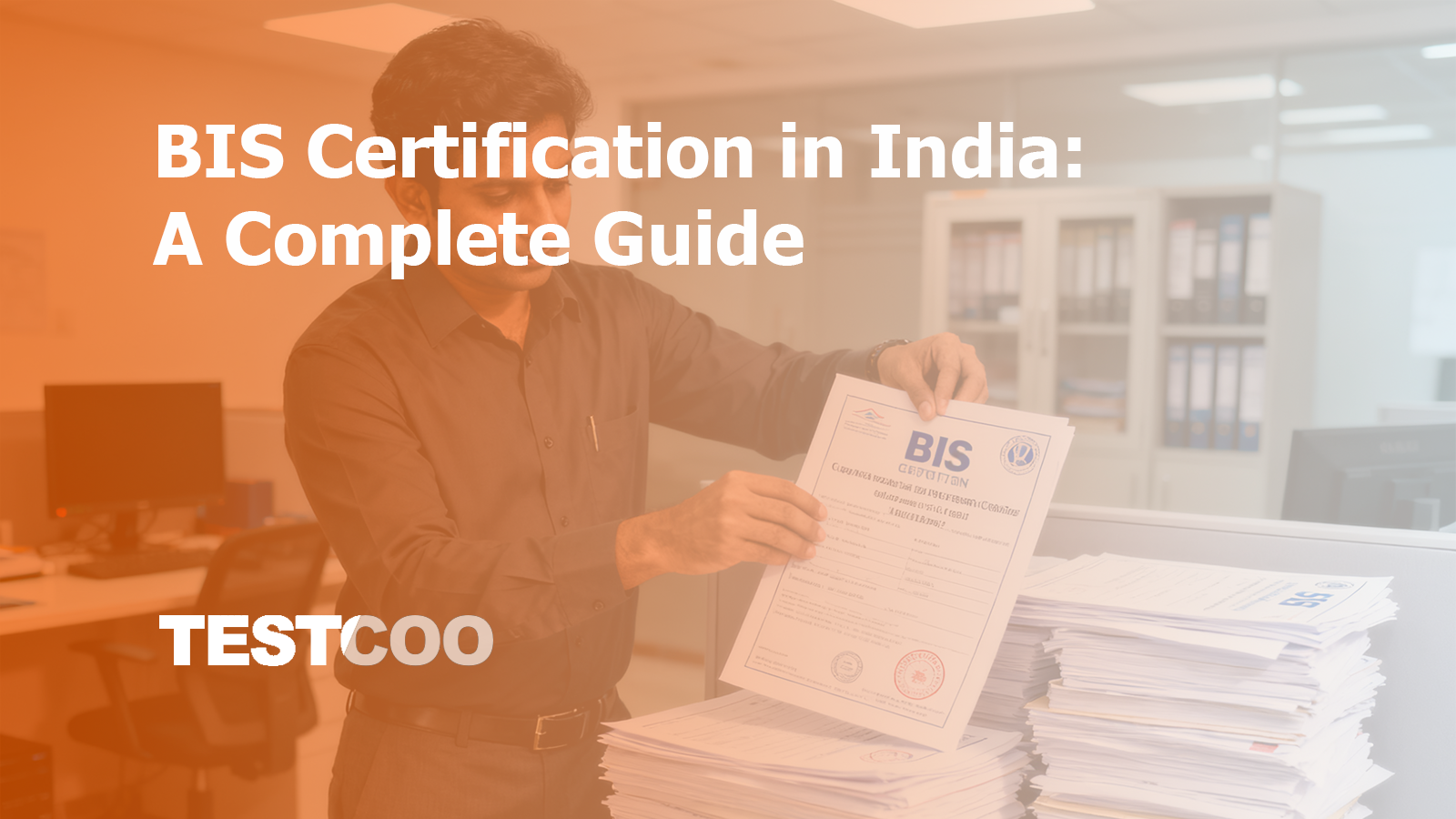
India is one of the fastest-growing manufacturing and consumer markets in the world. With its booming electronics, textiles, construction and automotive industries, the demand for quality and safety has never been higher. At the heart of this lies BIS certification, a seal of assurance granted by the Bureau of Indian Standards (BIS), India’s national standards body.
For importers, exporters and manufacturers, BIS certification is more than just paperwork, it’s the passport to doing business in India. It ensures that products meet Indian safety, quality and performance benchmarks, protecting both businesses and consumers from substandard or unsafe goods.
In this blog, we’ll explore everything you need to know about BIS certification: what it is, why it matters, product categories covered, types of certification schemes, the step-by-step process, challenges and how third-party inspection companies like Testcoo can simplify compliance.
What is BIS Certification?
The Bureau of Indian Standards (BIS) was established in 1986, replacing the Indian Standards Institution (ISI). Its mandate is to develop and maintain quality standards across industries to ensure safety, reliability and trust in products sold in India.
When a product is BIS certified, it means it has undergone testing, inspection and quality assurance in line with Indian regulations. Products that comply are awarded the ISI mark or relevant BIS certification mark, signaling that they meet required safety and quality standards.
In simple terms, BIS certification is India’s way of ensuring that consumers receive safe, reliable and high-quality products, whether manufactured domestically or imported.
Key Highlights of BIS Certification:
- Mandatory for specific products under Compulsory Registration Scheme (CRS).
- Ensures compliance with Indian Standards (IS codes).
- Valid for two years and renewable thereafter.
- Applicable for both domestic and foreign manufacturers.
Why is BIS Certification Important?
BIS certification plays a crucial role for businesses and consumers alike:
- Mandatory Compliance for Certain Products
- For categories like electronics, toys, food products, helmets, cement and safety equipment, BIS certification is legally required before sale. Non-compliance can result in penalties, recalls or bans.
- Consumer Safety
- It prevents unsafe, counterfeit or low-quality products from reaching the market, ensuring protection for end users.
- Brand Trust and Market Acceptance
- A BIS-certified product instantly signals quality and reliability, making it easier for companies to build credibility and attract customers.
- Smooth Market Entry
- Importers and foreign manufacturers cannot enter the Indian market for regulated categories without BIS certification.
- Support for “Make in India”
- The certification reinforces India’s drive toward higher manufacturing standards, promoting exports and global competitiveness.
Categories of Products Under BIS Certification
BIS certification applies to an extensive list of products more than 19,000 in total. These fall into two main categories:
- Mandatory Certification Products
Some examples include:- Electronics & IT goods: Mobile phones, laptops, LED lights, batteries.
- Toys & childcare items: To ensure safety for children.
- Construction materials: Cement, steel, pipes.
- Safety products: Helmets, protective gear.
- Packaged goods: Drinking water, food containers.
For these, BIS certification is a legal requirement before sale in India.
- Voluntary Certification Products
- For products not under the mandatory list, businesses can still seek BIS certification voluntarily.
- This helps companies differentiate themselves in the market by showcasing commitment to quality.
Types of BIS Certification Schemes
BIS certification is not one-size-fits-all. Depending on the product type and manufacturer’s location, different schemes apply:
1. ISI Mark Scheme
- ISI Mark Scheme is for Indian manufacturers.
- Ensures the product meets Indian standards through factory inspections and lab testing.
- Widely recognized for categories like cement, electrical appliances and steel.
2. FMCS (Foreign Manufacturers Certification Scheme)
- FMCS (Foreign Manufacturers Certification Scheme) is specifically for overseas manufacturers who want to sell regulated products in India.
- Requires testing in BIS-approved labs and inspection of foreign manufacturing facilities.
- Key for global exporters targeting India’s growing consumer base.
3. CRS (Compulsory Registration Scheme)
- CRS (Compulsory Registration Scheme) is introduced in 2012 primarily for electronics and IT products.
- Manufacturers (domestic or foreign) must register with BIS after testing their products in recognized labs.
- Examples: LED TVs, laptops, tablets, printers, power adapters.
4. Hallmarking Scheme
- Hallmarking Scheme is applicable to gold and silver jewelry.
- Ensures purity of precious metals.
Each scheme has its own process, timeline and cost but the goal is the same to ensure that products meet India’s quality and safety standards.
Step-by-Step BIS Certification Process
Step 1: Application Filing
- Manufacturer or importer submits the BIS application online, with product details and required documents.
Step 2: Document Submission
- Key documents include business licenses, test reports, product specifications and quality management system records.
Step 3: Sample Testing
- Products are tested in BIS-approved laboratories to verify compliance with standards.
Step 4: Factory Inspection (if required)
- BIS officials or authorized representatives inspect the manufacturing facility to check equipment, quality control systems and production processes.
Step 5: Grant of License
- Once the product passes inspection and testing, BIS issues the certification.
- Products can then carry the ISI mark or relevant BIS label.
Step 6: Renewal & Monitoring
- BIS certification is usually valid for 2 years after which it must be renewed.
- BIS conducts periodic surveillance audits to ensure ongoing compliance.
Timeline: The process typically takes 4–6 months but can vary depending on the scheme and product category.
Challenges and Common Pitfalls in BIS Certification
Despite its importance, companies often face hurdles in obtaining BIS certification:
- Complex Documentation
- Technical details and compliance paperwork can overwhelm small and medium businesses.
- Lengthy Process
- Testing, inspections and approval often take months, delaying market entry.
- Miscommunication Between Stakeholders
- Importers, manufacturers and agents may misinterpret BIS requirements, leading to delays or rejections.
- High Costs for Non-Compliance
- Selling uncertified products can result in penalties, costly recalls or reputational damage.
- Limited Awareness
- Many SMEs and foreign companies remain unaware of which products fall under mandatory BIS certification.
Role of Third-Party Inspection Companies in BIS Compliance
This is where companies like Testcoo add value. Navigating BIS requirements can be complex but third-party inspection partners help businesses:
- Pre-assessment audits: Evaluate factories before the BIS inspection.
- Testing coordination: Facilitate sample collection and testing in BIS-approved labs.
- Documentation support: Assist with application forms and technical paperwork.
- Supplier verification: Confirm whether a supplier’s “BIS certified” claim is genuine.
- Ongoing monitoring: Conduct independent inspections to ensure continuous compliance.
By partnering with a trusted inspection company, importers and manufacturers can reduce approval timelines, avoid costly mistakes and ensure smooth market entry in India.
Read more: India Quality Control: The Essential Blueprint for Global Importers
Future of BIS Certification in India
As India strengthens its position in global trade, BIS certification will only grow in importance:
- Expanding Scope: More products will gradually be added to the mandatory list, especially in electronics, EV components and safety equipment.
- Digital Transformation: Online application systems and e-certification will streamline processes.
- Global Alignment: BIS is increasingly aligning with international standards like ISO to make Indian products globally competitive.
- Make in India Push: High-quality, BIS-certified goods will boost India’s manufacturing reputation worldwide.
FAQs on BIS Certification in India
Is BIS certification mandatory for all products in India?
No. BIS certification is mandatory only for certain products notified by the government such as electronics, steel, cement and toys.
How long is a BIS certificate valid?
BIS certification is valid for two years and can be renewed thereafter.
Can foreign manufacturers get BIS certification?
Yes. Through the Foreign Manufacturers Certification Scheme (FMCS), overseas companies can apply for BIS certification provided they appoint a local representative in India.
How much does BIS certification cost?
The cost depends on product type, testing fees, inspection charges and government application fees. Typically, it ranges from ₹50,000 (USD ~550) to several lakhs.
Can I sell products in India without BIS certification?
Not for regulated products. Selling non-compliant goods can result in seizure, fines and bans.
How long does it take to get BIS certification?
The process usually takes 4–6 weeks but may extend depending on product testing and factory inspection schedules.
Are there any third party certification companies who help in BIS Certification?
There are many third party certification companies in India which can help in BIS certification. Get in touch with the certifications experts at Testcoo for your BIS certification needs.
Navigate BIS requirements confidently with Testcoo
BIS certification in India is not just a regulatory requirement, it’s a powerful tool for building trust, safety and credibility. For manufacturers, it opens doors to India’s vast consumer market; for importers, it ensures compliance and risk mitigation; and for consumers, it guarantees protection and reliability.
While the process can seem complex, the right guidance and support can make all the difference. At Testcoo, we help businesses navigate BIS requirements with confidence, from documentation and lab testing to supplier verification and ongoing quality inspections.
In today’s competitive landscape, BIS certification is not a hurdle, it’s a gateway to growth.
Looking to streamline your BIS certification journey?
Connect with Testcoo today and ensure your products meet India’s highest standards of safety and quality.
Free Sample Report Performance Quality Control
Download a sample report to keep control of your supply chain!
Featured Articles
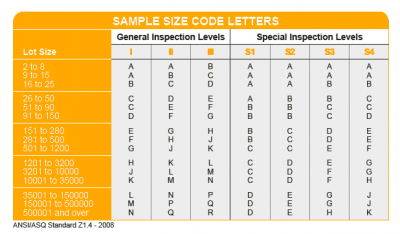 AQL Table | How to Read It
AQL Table | How to Read It TOP 10 Common Defects in Garments Quality Inspection
TOP 10 Common Defects in Garments Quality Inspection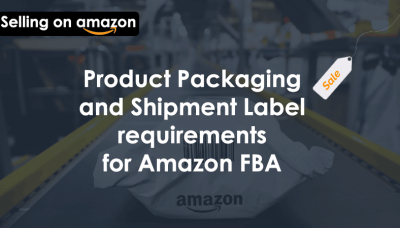 Product Packaging and Shipment Label requirements for Amazon FBA
Product Packaging and Shipment Label requirements for Amazon FBA What Is ASTM-F2413-18? Protective Footwear Standard
What Is ASTM-F2413-18? Protective Footwear Standard How to Conduct Third-Party Quality Control Inspections for Electric Scooters
How to Conduct Third-Party Quality Control Inspections for Electric Scooters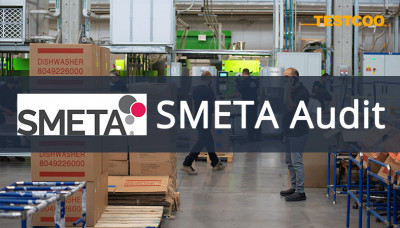 SMETA Audit-What is SMETA Audit?
SMETA Audit-What is SMETA Audit?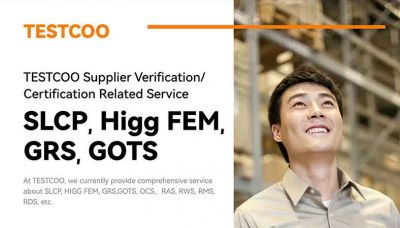 TESTCOO Supplier Verification/Certification Service SLCP, Higg FEM, GRS, GOTS
TESTCOO Supplier Verification/Certification Service SLCP, Higg FEM, GRS, GOTS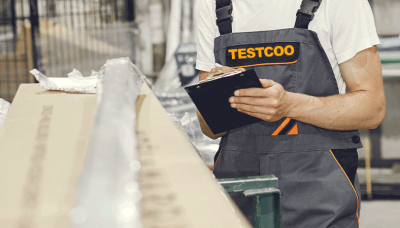 Quality Control Inspection Company in China
Quality Control Inspection Company in China What is Quality Inspection? A Complete Guide
What is Quality Inspection? A Complete Guide Guidelines for Product Inspection in India
Guidelines for Product Inspection in India
Category
- Production Inspection Service
- Factory Audit
- Softline Inspection
- Hardline Inspection
- Electrics Inspection
- Certification
- Checklist
- Manufacturers
- Quality Assurance Basics
- Products Recall
- AQL
- Guidence and Standard
- News
- Supplier Management
- Amazon
- Protective Equipment
- e-commerce quality control
- Indian Manufacturing
- Soft Goods Quality Control
- Supply Chain Management
- Supply Chain Resilience
- E-Commerce Quality Control
- ISO 2859
- Supply Chain Optimization
- Garment Industry
- Higg Index

